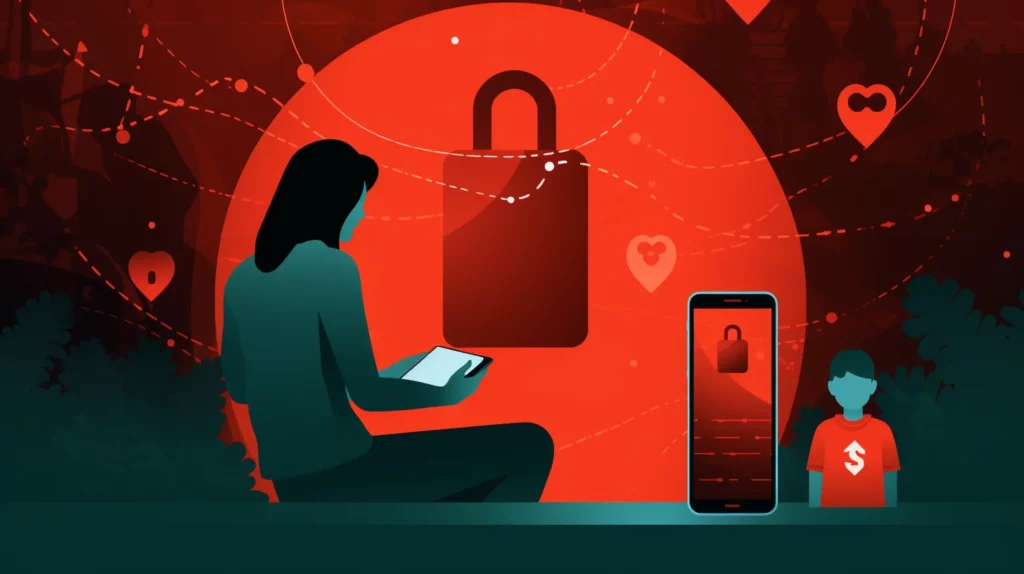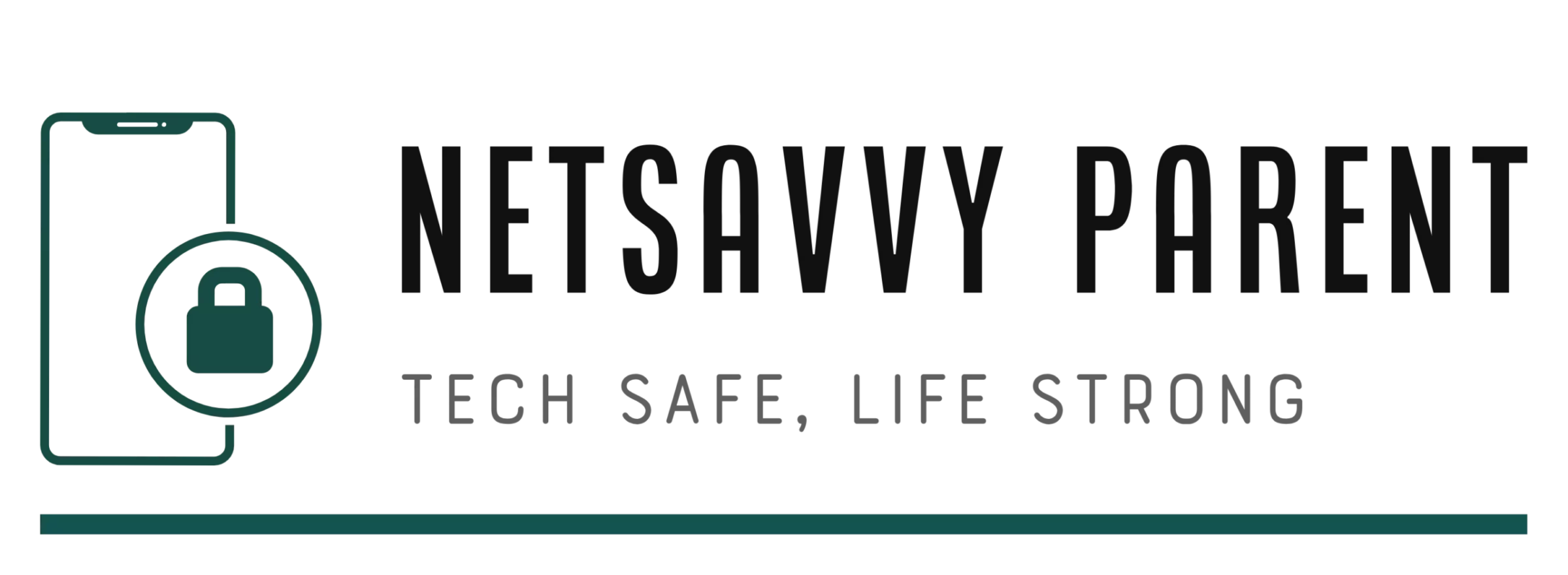As a parent of a teenager, you may feel overwhelmed by the way technology is constantly changing and the potential risks of the online world. However, with the right tools and knowledge, you can ensure your teen’s safety in the digital age. In this article, we will explore the top digital tips for parents of teens to navigate online challenges and protect their child’s digital footprint.
It’s important to recognize that technology is integral to our lives and can offer immense benefits to our teens. However, it’s equally important to balance the benefits with potential risks. By following the digital tips outlined in this section, you can empower your teen to make wise decisions online while staying safe and secure.

Encourage your teen to have a healthy balance between digital and real-life activities. This includes spending time with friends and family, participating in extracurricular activities, and pursuing hobbies and interests outside of the digital world. By doing so, you can promote healthy screen time for teens and prevent over-reliance on digital devices.

One of the best ways to foster digital literacy skills is to work alongside your teen. Collaborate to learn about new apps and social media platforms and discuss how to use them safely. Encourage your teen to think critically about what they encounter online, and help them develop strategies to avoid falling for scams or online predators.
Talk to your teen about the following:

Managing screen time for teenagers is also a vital aspect of digital parenting. It’s essential to promote healthy screen time while monitoring their online activities. Encourage your teen to take breaks and engage in real-life activities to maintain a healthy balance between their digital and real-life worlds.
Remember to keep an open and honest dialogue with your teen. Explain to them that monitoring their online activities does not invade their privacy but protects them from potential online dangers. Be available to answer their questions and provide guidance when needed.
Cyberbullying is a form of bullying that takes place online, typically through social media platforms or messaging apps. It can include sending hurtful messages, spreading rumors, or sharing embarrassing photos or videos.

Encourage them to talk to you about what they enjoy doing online and the apps they use. Stay curious and interested, and avoid being judgmental or dismissive of their interests. Remember that building trust is essential to fostering open communication.
Open communication is critical to promoting healthy digital habits and staying connected with your teen.

The best way to promote digital literacy skills is to collaborate with your teen. Take the time to learn together, ask questions, and encourage critical thinking. Working together, you can help your teen navigate the online world and make informed decisions about their digital footprint.

By fostering a culture of privacy and caution, you can help your teen develop healthy online habits and avoid potential dangers. Remember, protecting personal information is just one aspect of digital parenting. Be sure to implement all the top digital tips to ensure your teen’s safety and success in the online world.
By following these tips, you can ensure your teen’s online safety and empower them to make wise decisions online. Creating a supportive environment where your teen feels comfortable discussing their online experiences, challenges, and concerns is crucial. Stay updated on the latest digital trends and collaborate with your teen to learn together and foster their critical thinking and digital literacy skills. Remember, together, we can navigate the digital age successfully.
It’s important to recognize that technology is integral to our lives and can offer immense benefits to our teens. However, it’s equally important to balance the benefits with potential risks. By following the digital tips outlined in this section, you can empower your teen to make wise decisions online while staying safe and secure.
Key Takeaways:
- Set clear boundaries and expectations for digital use
- Teach responsible internet use and foster digital literacy skills
- Monitor your teen’s online activities while respecting their privacy
- Address cyberbullying and online harassment with open communication and management of social media use
- Protect personal information by reviewing privacy settings and being cautious about sharing sensitive details online

Set Clear Boundaries and Expectations
When it comes to digital parenting, setting clear boundaries and expectations is crucial. You can start by establishing rules regarding screen time, online behavior, and the use of social media platforms. This will help you manage screen time for teenagers and balance digital and real-life activities for your teen.Encourage your teen to have a healthy balance between digital and real-life activities. This includes spending time with friends and family, participating in extracurricular activities, and pursuing hobbies and interests outside of the digital world. By doing so, you can promote healthy screen time for teens and prevent over-reliance on digital devices.
Managing screen time for teenagers
- Set limits on the amount of time they spend on digital devices.
- Schedule regular breaks and encourage physical activity.
- Limit the use of digital devices during meal times and before bedtime.
Balancing digital and real-life activities for teens
- Encourage your teen to spend time with family and friends.
- Encourage participation in extracurricular activities.
- Encourage pursuing hobbies and interests outside of the digital world.

Teach Responsible Internet Use
Teaching your teen responsible internet use is crucial. By educating them about online privacy, the potential risks of sharing personal information, and the importance of using strong passwords, you can help your teen navigate the online world safely.One of the best ways to foster digital literacy skills is to work alongside your teen. Collaborate to learn about new apps and social media platforms and discuss how to use them safely. Encourage your teen to think critically about what they encounter online, and help them develop strategies to avoid falling for scams or online predators.
Talk to your teen about the following:
- The risks of oversharing personal information online
- How to recognize and avoid phishing scams
- The importance of keeping passwords private and changing them frequently
- The potential consequences of cyberbullying and online harassment

Monitor Online Activities
Monitoring your teen’s online activities is crucial to ensure their safety. Using parental controls and monitoring software; you can track their browsing history, social media profiles, and online interactions. However, balancing this with respecting their privacy and fostering trust is essential. Let your teen know that you will monitor their activity to keep them safe, but also encourage them to come to you with any concerns or issues they may encounter.Managing screen time for teenagers is also a vital aspect of digital parenting. It’s essential to promote healthy screen time while monitoring their online activities. Encourage your teen to take breaks and engage in real-life activities to maintain a healthy balance between their digital and real-life worlds.
Remember to keep an open and honest dialogue with your teen. Explain to them that monitoring their online activities does not invade their privacy but protects them from potential online dangers. Be available to answer their questions and provide guidance when needed.
Address Cyberbullying and Online Harassment
With the rise of social media, cyberbullying, and online harassment have become increasingly prevalent. As a parent, it is essential to teach your teen about the impact of cyberbullying and how to respond if they encounter it.Cyberbullying is a form of bullying that takes place online, typically through social media platforms or messaging apps. It can include sending hurtful messages, spreading rumors, or sharing embarrassing photos or videos.
If your teen has experienced cyberbullying, encourage them to:
- Block the person who is engaging in bullying behavior.
- Screenshot any messages or posts related to the incident as evidence.
- Report the incident to the social media platform or app.
- Talk to a trusted adult, such as a parent or teacher.
Online harassment can also include hate speech, threats, or stalking behavior. Teach your teen to:
- Keep their personal information private.
- Set their social media accounts to private mode.
- Avoid engaging with individuals who engage in harmful behavior or posting offensive content.
- Report any incidents of online harassment to the appropriate authorities.

Promote Open Communication
One of the most crucial aspects of digital parenting is promoting open communication with your teen. Create a supportive environment where they feel comfortable discussing their online experiences, challenges, and concerns. Let them know they can come to you with any questions or problems they may encounter online.Encourage them to talk to you about what they enjoy doing online and the apps they use. Stay curious and interested, and avoid being judgmental or dismissive of their interests. Remember that building trust is essential to fostering open communication.
- Start the conversation by asking open-ended questions, such as “What did you enjoy doing online today?” or “Have you had any positive experiences on social media recently?”
- Listen actively and without interruption. This will show your teen that you respect their opinions and experiences.
- Avoid lecturing or criticizing their online behavior. Instead, provide guidance and support.
Open communication is critical to promoting healthy digital habits and staying connected with your teen.

Foster Digital Literacy Skills
In today’s digital age, parents must foster digital literacy skills in their teenagers. This means staying up-to-date on the latest digital trends and social media platforms and understanding how to use them safely and effectively.The best way to promote digital literacy skills is to collaborate with your teen. Take the time to learn together, ask questions, and encourage critical thinking. Working together, you can help your teen navigate the online world and make informed decisions about their digital footprint.
Tips for fostering digital literacy skills:
- Stay informed: Keep up-to-date on digital trends and social media platforms.
- Collaborate with your teen: Learn together and encourage critical thinking. For example, help them consider what information to share, how to respond to online harassment, and what to do if they see something upsetting them.
- Use educational resources: Take advantage of online safety resources such as the National Cyber Security Alliance’s website, staysafeonline.org which offers technology guidance for parents, guardians, and educators. The website provides tips on protecting your family’s online information, handling online bullying, and more.
- Encourage creativity: Encourage your teen to use digital tools for creative expression, such as creating videos or podcasts.

Protect Personal Information
Protecting personal information is a critical aspect of online safety for teens. Teach your teen the importance of keeping sensitive information private, such as their full name, address, and phone number. Emphasize the potential risks of sharing personal information on public platforms and advise them to review privacy settings on social media accounts. Encourage caution when accepting friend requests from strangers and emphasize the importance of reporting suspicious activity.By fostering a culture of privacy and caution, you can help your teen develop healthy online habits and avoid potential dangers. Remember, protecting personal information is just one aspect of digital parenting. Be sure to implement all the top digital tips to ensure your teen’s safety and success in the online world.
Conclusion
As parents, we are responsible for keeping our teens safe in the digital world. The top digital tips for parents of teens discussed in this article will help you navigate the challenges of the digital age and protect your teen’s digital footprint. Remember to set clear boundaries and expectations regarding screen time and online behavior, teach responsible internet use, monitor online activities, address cyberbullying and harassment, promote open communication, foster digital literacy skills, and protect personal information.By following these tips, you can ensure your teen’s online safety and empower them to make wise decisions online. Creating a supportive environment where your teen feels comfortable discussing their online experiences, challenges, and concerns is crucial. Stay updated on the latest digital trends and collaborate with your teen to learn together and foster their critical thinking and digital literacy skills. Remember, together, we can navigate the digital age successfully.
Frequently Asked Questions
What are some tips for setting clear boundaries and expectations for my teen’s online activities?
Setting clear boundaries and expectations is crucial for digital parenting. Establish rules regarding screen time, online behavior, and the use of social media platforms. Encourage your teen to have a healthy balance between digital and real-life activities.
How can I teach my teen responsible internet use?
It’s essential to teach your teen about responsible internet use. Educate them about online privacy, the potential risks of sharing personal information, and the importance of using strong passwords. Foster digital literacy skills to help them navigate the online world safely.
How can I monitor my teen's online activities?
Monitoring your teen’s online activities can help you stay aware of their online behavior. Use parental controls and monitoring software to track their browsing history, social media profiles, and online interactions. However, balance this with respecting their privacy and fostering trust.
How can I address cyberbullying and online harassment with my teen?
Cyberbullying is a significant concern in the digital age. Teach your teen about the impact of cyberbullying and how to respond if they encounter it. Encourage them to report any incidents and help create a safe environment by managing their social media use and monitoring their online interactions.
How can I promote open communication with my teen regarding their online experiences?
Promoting open communication with your teen is vital. Create a supportive environment where they feel comfortable discussing their online experiences, challenges, and concerns. Be available to answer their questions and provide guidance when needed.
How can I foster digital literacy skills in my teen?
Digital literacy skills are essential for navigating the online world effectively. Stay updated on the latest digital trends, apps, and social media platforms. Collaborate with your teen to learn together and foster their critical thinking and digital literacy skills.
How can I help my teen protect their personal information online?
Teach your teen about protecting their personal information online. Advise them not to share sensitive details on public platforms like their full name, address, or phone number. Encourage them to review privacy settings on social media accounts and be cautious about accepting friend requests from strangers.


